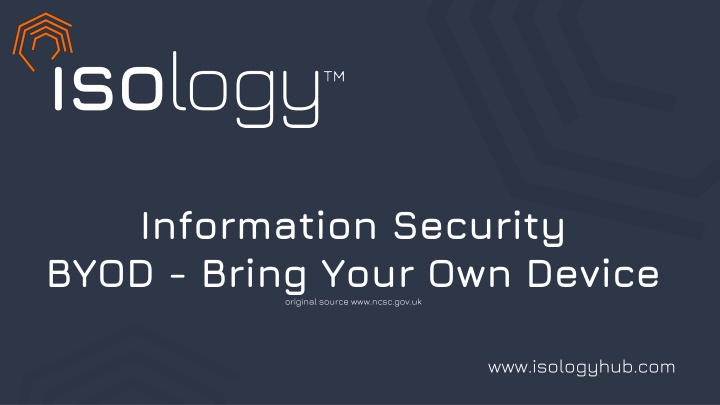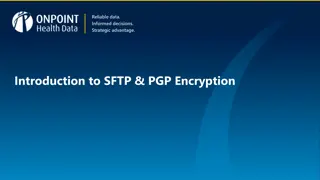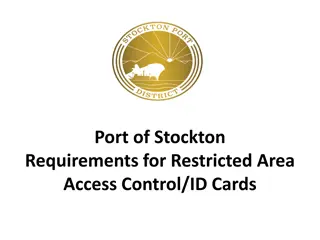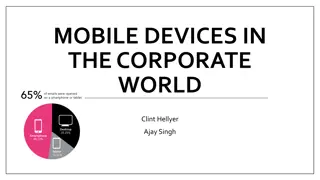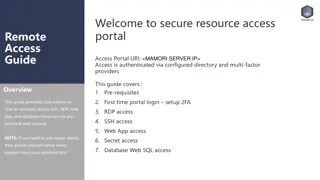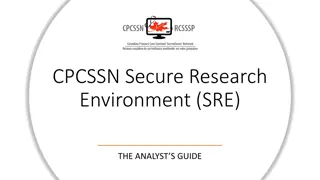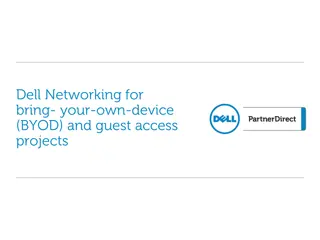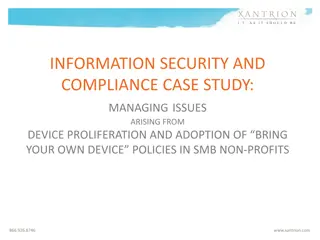Effective BYOD Policy for Secure Business Data Access
Bring Your Own Device (BYOD) can be a secure practice if managed properly. Organizations should create policies to control access to business data on personally-owned devices, ensure employee compliance with security protocols, utilize technical controls, plan for security incidents, anticipate device support needs, and understand legal responsibilities regarding personal information protection. Implementing these measures can help maintain a secure BYOD environment.
Download Presentation

Please find below an Image/Link to download the presentation.
The content on the website is provided AS IS for your information and personal use only. It may not be sold, licensed, or shared on other websites without obtaining consent from the author.If you encounter any issues during the download, it is possible that the publisher has removed the file from their server.
You are allowed to download the files provided on this website for personal or commercial use, subject to the condition that they are used lawfully. All files are the property of their respective owners.
The content on the website is provided AS IS for your information and personal use only. It may not be sold, licensed, or shared on other websites without obtaining consent from the author.
E N D
Presentation Transcript
Information Security BYOD - Bring Your Own Device original source www.ncsc.gov.uk www.isologyhub.com
Information Security BYOD - Bring Your Own Device www.isologyhub.com
Blackmores BYOD Bring Your Own Device Essentially there is nothing wrong with the concept of Bring your own device (BYOD); it s the way that organisations control BYOD that makes the difference between a secure and unsecure system. Create an effective BYOD Policy: Ensure that personally-owned devices are only able to access business data that the user is authorised to see and use. Encourage staff agreement: A business should communicate its BYOD policy through employee training so they understand their responsibilities when using personally-owned devices for work purposes www.isologyhub.com
Blackmores BYOD Bring Your Own Device Employee Compliance: Employees should be prepared to update and maintain security protocols for anti-virus protection whilst using their own device for business. Limit the information shared by devices: Employees are used to sharing their information with other users and in the cloud. The automated backup of device data to cloud based accounts can lead to business data being divulged. www.isologyhub.com
Blackmores BYOD Bring Your Own Device Consider using technical controls: Container applications and technical services such as Mobile Device Management can help you remotely manage personally-owned devices, but they can impact the usability of the device. Plan for security incidents: When incidents occur, act quickly to limit losses. An organisation should be able to remotely wipe sensitive data from a personally-owned device if it is lost or stolen. www.isologyhub.com
Blackmores BYOD Bring Your Own Device Anticipate increased device support: An organisations services may need to be accessed by different types of devices, so ensure that you have the IT support capability and expertise to manage a growing range of devices. Understand the legal issues relating to PII: The legal responsibility for protecting other people s personal information is with the data controller, not the device owner. What are the requirements of the data controller about the use of personal devices for the management of the PII for which they are responsible www.isologyhub.com
Blackmores BYOD Bring Your Own Device Understand the legal issues relating to software: The licence of software loaded on personal devices belongs to the business and must be removed during the termination of employment process. www.isologyhub.com
